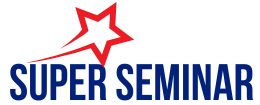In today’s fast-paced digital landscape, businesses are constantly seeking innovative ways to enhance efficiency and drive growth. Software as a Service (SaaS) has emerged as a game-changing solution, offering companies the flexibility and scalability they need to stay competitive. With SaaS, organizations can access powerful applications over the internet, eliminating the need for costly infrastructure and complex installations.
Embracing SaaS business solutions not only streamlines operations but also fosters collaboration and improves productivity. As companies navigate the challenges of remote work and digital transformation, understanding the benefits and potential of SaaS becomes crucial. This article will explore how SaaS can revolutionize business processes, providing insights into its advantages and best practices for implementation.
Table of Contents
ToggleOverview Of SaaS Business Solutions
SaaS business solutions encompass cloud-based software applications delivered over the internet. Businesses access these applications without the need for on-premises installations, enabling efficient operations. This model allows for automatic updates, real-time collaboration, and scalability tailored to the company’s needs.
Companies utilize various SaaS solutions, including:
- Customer Relationship Management (CRM): Tools like Salesforce manage customer interactions and improve sales processes.
- Project Management: Applications such as Asana streamline project tracking and team collaboration.
- Human Resources: Platforms like Workday automate HR processes, including payroll and recruitment.
- Financial Management: Software such as QuickBooks simplifies accounting and financial reporting.
SaaS eliminates the burden of hardware maintenance and software installation, reducing operational costs. Organizations pay based on usage or subscription models, making it cost-effective.
SaaS solutions enhance collaboration by allowing teams to work simultaneously from different locations. This capability supports remote work arrangements, which have become essential in today’s business landscape.
Security remains a critical consideration in adopting SaaS. Providers implement robust security measures, including data encryption and access controls, to protect sensitive information. Compliance with regulations, such as GDPR or HIPAA, also plays a significant role in software selection for businesses.
Overall, SaaS business solutions offer flexibility, efficiency, and cost savings, empowering organizations to focus on core functions while benefiting from advanced technologies.
Benefits Of SaaS Business Solutions

SaaS business solutions provide numerous advantages that enhance operational efficiency and drive innovation. Key benefits include cost efficiency, scalability, and accessibility.
Cost Efficiency
SaaS business solutions significantly reduce costs for organizations. Capital expenditures on hardware and software installations vanish, shifting to predictable subscription-based pricing models. Organizations avoid ongoing maintenance expenses since service providers handle updates and infrastructure upkeep. Research by Gartner indicates that businesses can save up to 30% on IT costs by adopting SaaS solutions compared to traditional models. This financial relief allows investments in other critical areas for growth.
Scalability
SaaS solutions offer unmatched scalability options. Organizations can adjust usage quickly based on demand, allowing for easy scaling up or down of resources. For instance, during peak seasons, businesses can add users or features without extensive IT support. This flexibility helps maintain optimal performance and ensures that companies only pay for what they utilize. According to a study by McKinsey, companies using SaaS reported improved agility and faster time-to-market for new products and services.
Accessibility
SaaS solutions enhance accessibility by enabling users to access applications from any device with an internet connection. This capability is particularly beneficial for remote teams and employees on the go. Organizations can foster real-time collaboration, as team members can work together simultaneously regardless of location. A survey by FlexJobs found that 82% of employees prefer remote work options, underscoring the need for tools that support this trend. This accessibility leads to higher productivity and employee satisfaction, driving overall business success.
Key Features To Look For
Selecting the right SaaS business solution involves identifying key features that enhance usability, connectivity, and security. Understanding these aspects ensures companies make informed decisions to benefit from their chosen platforms.
User-Friendly Interface
A user-friendly interface simplifies navigation and minimizes the learning curve. Companies benefit when applications present intuitive designs that enhance user experience. Clear layouts, easy access to features, and responsive design contribute to increased user adoption and productivity. For example, platforms like Trello provide visual task management, allowing users to quickly track project progress without technical challenges.
Integration Capabilities
Integration capabilities enable seamless interaction with other systems and tools. Solutions should support connections with existing software to streamline workflows and data sharing. APIs (Application Programming Interfaces) and pre-built connectors facilitate these integrations, ensuring data consistency across platforms. For instance, CRM software linking with email marketing tools enhances lead management efficiency, allowing for tailored customer interactions.
Security Measures
Security measures play a crucial role in safeguarding data within SaaS platforms. Effective solutions implement encryption, multi-factor authentication, and regular security audits to protect sensitive information. Compliance with industry standards like GDPR and HIPAA fosters trust among users. Furthermore, providers should offer data backup and recovery options to mitigate risks in case of breaches or system failures, ensuring business continuity.
Popular SaaS Business Solutions
SaaS business solutions encompass various cloud-based applications tailored for diverse business needs. Some notable solutions excel in enhancing specific functionalities across industries.
Comparison Of Top Solutions
Several leading SaaS solutions stand out for their features and usability. The following table highlights the key providers:
| Provider | Type | Key Features | Starting Price |
|---|---|---|---|
| Salesforce | Customer Relationship Management (CRM) | Comprehensive analytics, customizable dashboards | $25/user/month |
| Asana | Project Management | Task assignments, timeline views, customizable workflows | $10.99/user/month |
| Workday | Human Resources Management | Talent management, payroll integration, analytics | $100/user/month |
| QuickBooks | Financial Management | Invoicing, expense tracking, multi-currency support | $25/month |
| Slack | Team Communication | Channels, file sharing, integration with third-party apps | Free with limitations |
These solutions offer distinct advantages, ensuring organizations can select tools that align with their operational goals.
Industry-Specific Options
Numerous SaaS solutions cater specifically to industry needs, enhancing functionality and compliance. Examples include:
- Healthcare: Solutions like Athenahealth provide practice management and revenue cycle management, ensuring regulatory compliance and patient management.
- E-commerce: Platforms like Shopify offer customizable storefronts, payment processing, and inventory management, supporting online retailers.
- Education: Learning management systems such as Canvas enhance course management and student engagement, tailored for educational institutions.
- Real Estate: Tools like Zillow Premier Agent provide agents with lead management, market analysis, and client engagement features.
These industry-specific options enable organizations to harness specialized capabilities, ensuring they meet unique demands effectively.
SaaS business solutions are revolutionizing how organizations operate in a digital-first world. By offering flexibility and cost efficiency they empower businesses to adapt quickly to changing demands. The ability to access powerful applications from anywhere enhances collaboration and productivity which is essential for remote teams.
As companies continue to embrace digital transformation they must consider the specific needs of their operations when selecting SaaS solutions. Prioritizing usability security and integration capabilities can lead to successful implementation. With the right SaaS tools in place organizations can streamline processes and focus on growth while reaping the benefits of advanced technology.




